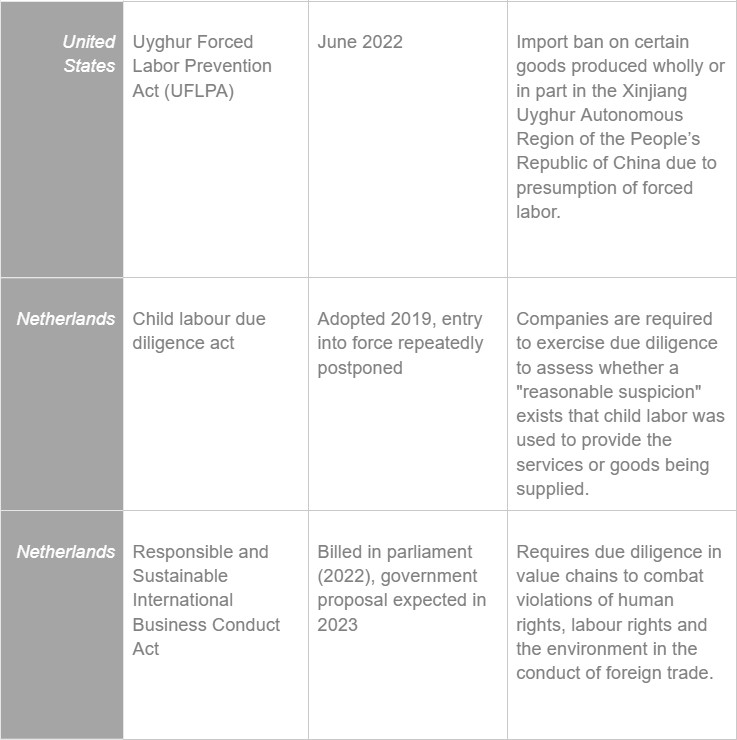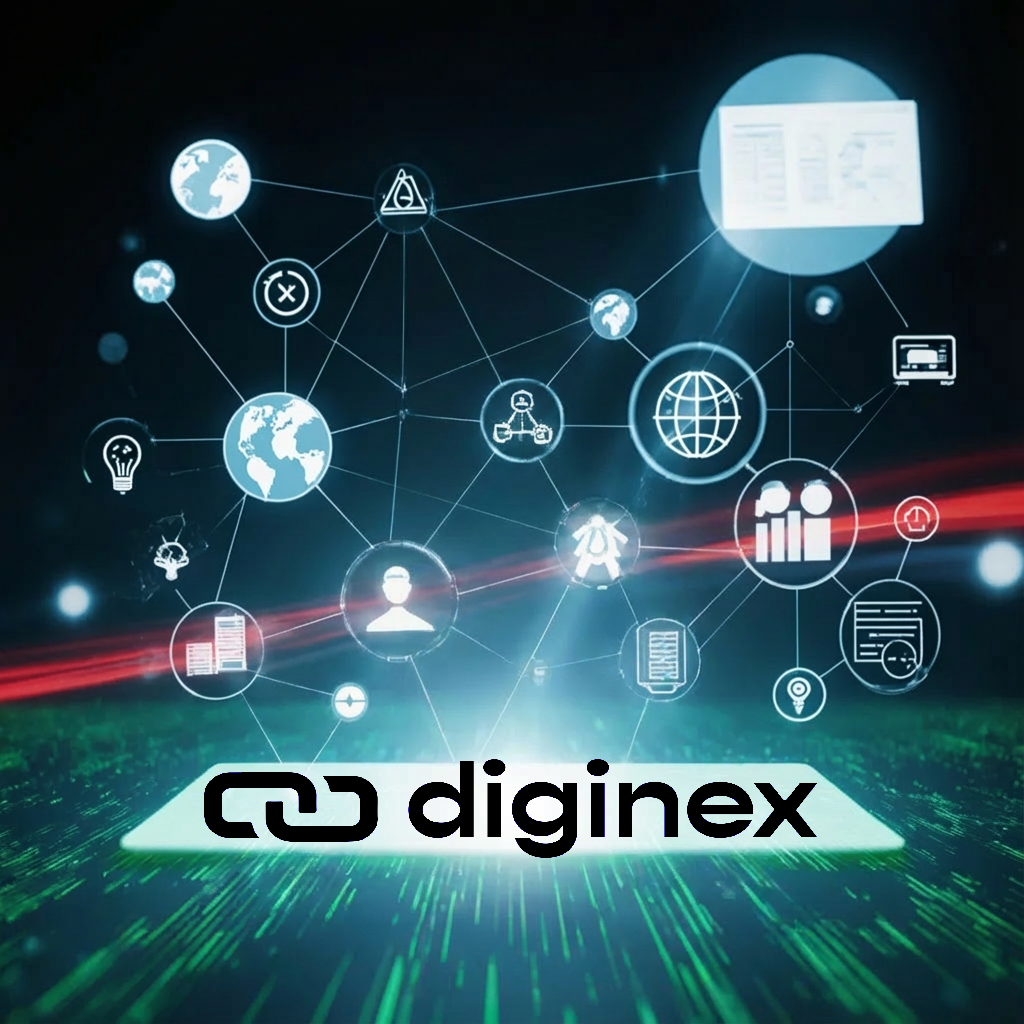Supply Chain Sustainability Trends anticipated in 2023

Expectations on human rights and environmental due diligence in global supply chains have been steadily growing over the past decade – shifting from voluntary international guidelines and sectoral efforts towards mandatory requirements. In 2022, growth of policies accelerated globally – including supply chain due diligence legislation, import bans on products presumptively linked to forced labor bans, product sustainability regulations and expanding non-financial disclosure requirements – with a proliferation of laws from multiple jurisdictions.
Most international companies already recognize their responsibility to respect the human rights of people and the planet along their full value chain. Yet to fulfil this responsibility, companies must put in place ongoing and continuous due diligence programs across a wide breadth of supply chain actors and geographies. Identifying and remediating social and environmental risks is an ongoing process that even the most advanced companies are continuously improving upon. We anticipate the following trends in supply chain sustainability hitting high on the 2023 agenda:
Supplier assessments to simultaneously consider both environmental and human rights impact: While companies have historically addressed human rights and environmental issues separately and under separate teams, we anticipate that these artificial silos will start to come down. Companies are recognizing that the process of collecting necessary information and data for environment and social risks overlap and benefit from collaboration. In addition, awareness of the interconnected nature of business, human rights and the environmental impact (e.g. just transition) is increasing as reflected in legislation that mandates both be equally addressed (e.g. CSDDD).
Going beyond Tier 1: While most responsible businesses have mapped their Tier 1 suppliers – with these suppliers often required to go through stringent onboarding and social audits to evidence compliance with the company’s human and labour rights and environmental policies – supplier mapping and due diligence beyond Tier 1 is generally patchy and remains challenging. With legislation increasingly holding companies accountable for what occurs throughout their full supply chain (including T2 and beyond), the complexity of supply chain tiers and indirect business relationships will no longer be defensible. Companies will increasingly be expected to understand who their suppliers’ business partners are and understand the social and environmental credentials in their full value chain. Companies without human rights strategies will need to quickly catch-up to avoid risks of non-compliance.
Risk-based approach aligned with OECD and UNGPs: As emerging mandatory due diligence obligations begin to come into effect across Europe, prudent companies will plan ahead and begin to build a human rights due diligence approach that is consistent with the standards set out in the OECD Guidelines and the UNGPs. This will help companies to future-proof their compliance programs against all the emerging human rights due diligence regulation.
Accountability through product traceability: Supply chain traceability is the process of tracking the provenance and journey of products and their inputs, from the very start of the supply chain (e.g. raw materials) through to end-use (e.g. reaching the consumer). Companies undertaking traceability can credibly make and verify sustainability claims to increase consumer trust and confidence about the sustainability of their products (e.g. certified organic, carbon neutral, no forced labor). We anticipate traceability tools will increasingly incorporate social and environmental data capture and validation methods into their approach.
Adoption of digital platforms for managing and automating supplier risk assessments: We anticipate that technology adoption will continue to grow in 2023. The days of huge excel documents capturing all the data and information on suppliers and their sustainability performance will become part of the history books ! With the capabilities of digital platforms expanding at an accelerated pace and increasing efficiency in data analysis – including automated risk assessments and advanced analytics – manually tracking, analysing and storing data in spreadsheets is sure to become a thing of the past.
Amplifying Worker Voice
The pandemic accelerated the use of technology to conduct digital worker interviews and surveys at supplier sites, without the need for international travel by auditors. Companies quickly realised this practice should stay, as it enables them to gather a more holistic picture of worker experiences easily and at scale, allowing a far greater number and more diverse set of workers to share their experiences. This can both support the verification of responsible business practices and identify possible negative impacts. In addition, companies have found that providing workers with an opportunity to give feedback has proved valuable to improving employee engagement and retention.
Below, is a summary list of legislative moves in 2022 and a look ahead at what to expect in 2023 and beyond!









